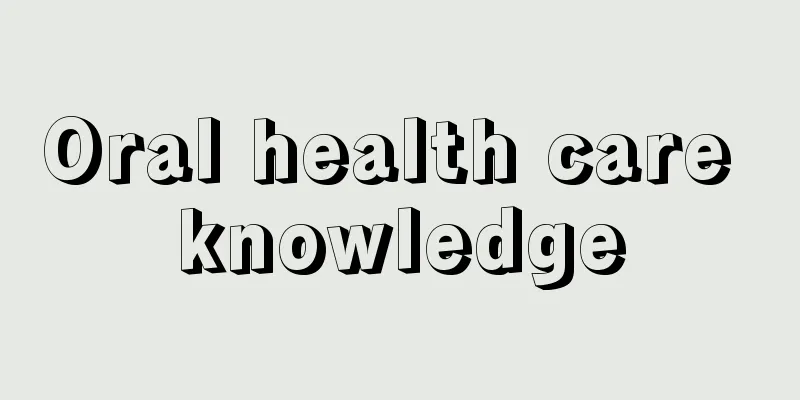Oral health care knowledge

|
The most vulnerable part of the human body is the oral cavity. Most of the physical diseases of human beings are related to the oral cavity. Breathing and eating are both inseparable from the mouth. Too many bacteria in the mouth can cause mouth ulcers, and chewing too much betel nut can cause oral cancer. Oral hygiene knowledge is not only learned by children. Adults actually pay less attention to oral hygiene. Many high-risk oral diseases occur mostly among adult patients. It is very necessary to have certain knowledge in this area. 1. How to prevent tooth decay? 1. Brush your teeth thoroughly at least twice a day, preferably once in the morning and before going to bed. 2. Brushing your teeth with fluoride toothpaste can effectively prevent the occurrence of tooth decay. 3. Use dental floss to clean the gaps between teeth every day to remove the plaque on adjacent surfaces that are difficult to reach with a toothbrush. 4. Develop good eating habits: eat less sweet and sticky foods such as toffee, chocolate, desserts and ice cream, drink less sweet drinks, and try to eat before or after meals. Be sure to brush your teeth or rinse your mouth after eating. 5. Go to the hospital regularly (about every six months) for oral health examinations and maintenance. 2. Self-awareness of periodontal disease ⑴ Recently, there are blood stains on the bristles when brushing your teeth, and blood stains on food when biting objects, which means that you have begun to have gingivitis. ⑵ If the teeth are not loose but the gums are red and swollen and bleed when touched, it means you have gingivitis. ⑶ The teeth are loose to varying degrees, the bite is weak, and the roots are exposed, indicating that periodontitis has developed. If these symptoms are not treated and controlled well, the teeth will become loose and fall out, directly affecting chewing, pronunciation and aesthetics. 3. How to prevent periodontal disease? 1. Develop good oral hygiene habits, use the correct brushing method to brush your teeth effectively, and it is recommended to use dental floss to remove plaque between teeth. 2. Have regular oral health checks. Best once every six months. 3. Perform oral cleaning (commonly known as teeth cleaning) regularly every six months to a year to maintain healthy gums and strong teeth and effectively prevent periodontitis. 4. Eat a balanced diet, strengthen physical exercise, and improve the body's resistance. |
<<: Infective Endocarditis Guide
>>: What color hair should I dye if my face is dark yellow?
Recommend
The difference between skin cancer and moles
Moles are also called pigmented nevi. Everyone ha...
Will drinking buckwheat tea cause internal heat?
When it comes to buckwheat tea, many friends may ...
How to quickly remove acne marks
The so-called acne marks are the scars left after...
How come acne turns into hard pimples
People often worry that their daily routine is no...
Can a patient with kidney cancer have a child?
Can kidney cancer patients have children? Many yo...
What are the wonderful uses of erythromycin
Erythromycin is a common antibiotic drug in clini...
Can green wild mangoes be eaten?
The mangoes we usually eat are cultivated mangoes...
How long can you live with lung cancer
How long can you live with lung cancer? Many peop...
What are the symptoms of diaphragm spasm?
Diaphragm spasm is hiccups and gastric neurosis. ...
Sequelae of radiotherapy for nasopharyngeal carcinoma
Radiotherapy in various hospitals is generally th...
Can toothpaste remove age spots?
Age spots are a common type of skin spot for many...
What glasses look good on a square face?
When you see someone wearing glasses, the first t...
The embryo is developing well
Whether the embryo is developing well is somethin...
What causes sweaty soles of feet?
I believe that many teenagers will find that the ...
It feels especially good to use hot water to cure athlete's foot
For patients with athlete's foot, the biggest...









